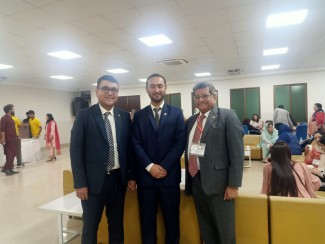Compassion Satisfaction, Burnout, Secondary Traumatic Stress and Wellbeing among Substance Use Treatment Counselors

Abstract
Objective: Present study aims to investigate the role of CS, BO, and STS in the well-being of counselors working in the field of substance use treatment facilities during the COVID-19 pandemic.
Method: A sample of 200 mental health and substance use treatment counselors were recruited from different in and outpatient treatment centers and institutes. The age ranges of the entire sample were from 18 to 58 years (M = 26.85; SD = 63). They were assessed through Professional Quality of Life-5 (ProQOL-5), and the WHO Wellbeing Index (WHO-5) to evaluate, CS, BO, and STS, and wellbeing, respectively.
Results and conclusion: Results show that Compassion Satisfaction positively predict F(3, 275) = 334.556, P<0.000, R 2 .785) wellbeing in substance use treatment counselors. However, Burnout F(3, 275)=334.556, P< 0.05, R 2 .785), and Secondary Traumatic Stress negatively predict F(3, 275) = 334.556, P<0.000, R 2 .785) wellbeing in substance use treatment counselors. Findings revealed that the COVID-19 pandemic represents new working challenges for substance use treatment counselors, and intervention strategies to prevent burnout and secondary trauma to reduce the risk of adverse mental health outcomes are needed.
Keywords: Compassion satisfaction, burnout, secondary traumatic stress, substance use treatment counselors
